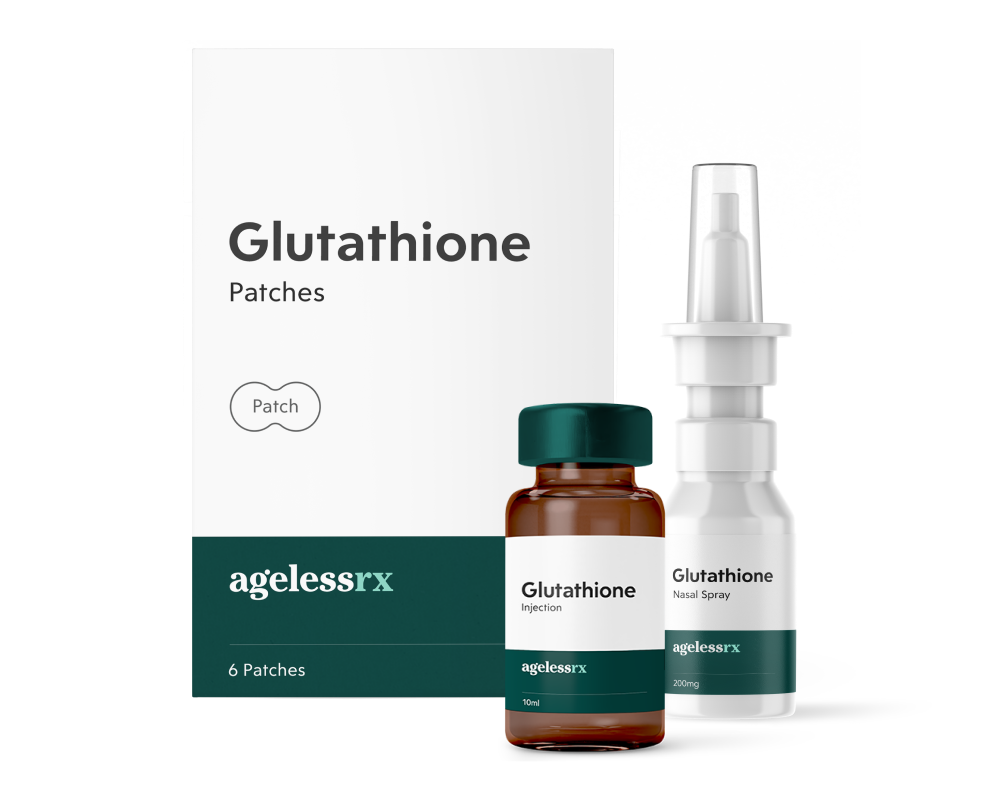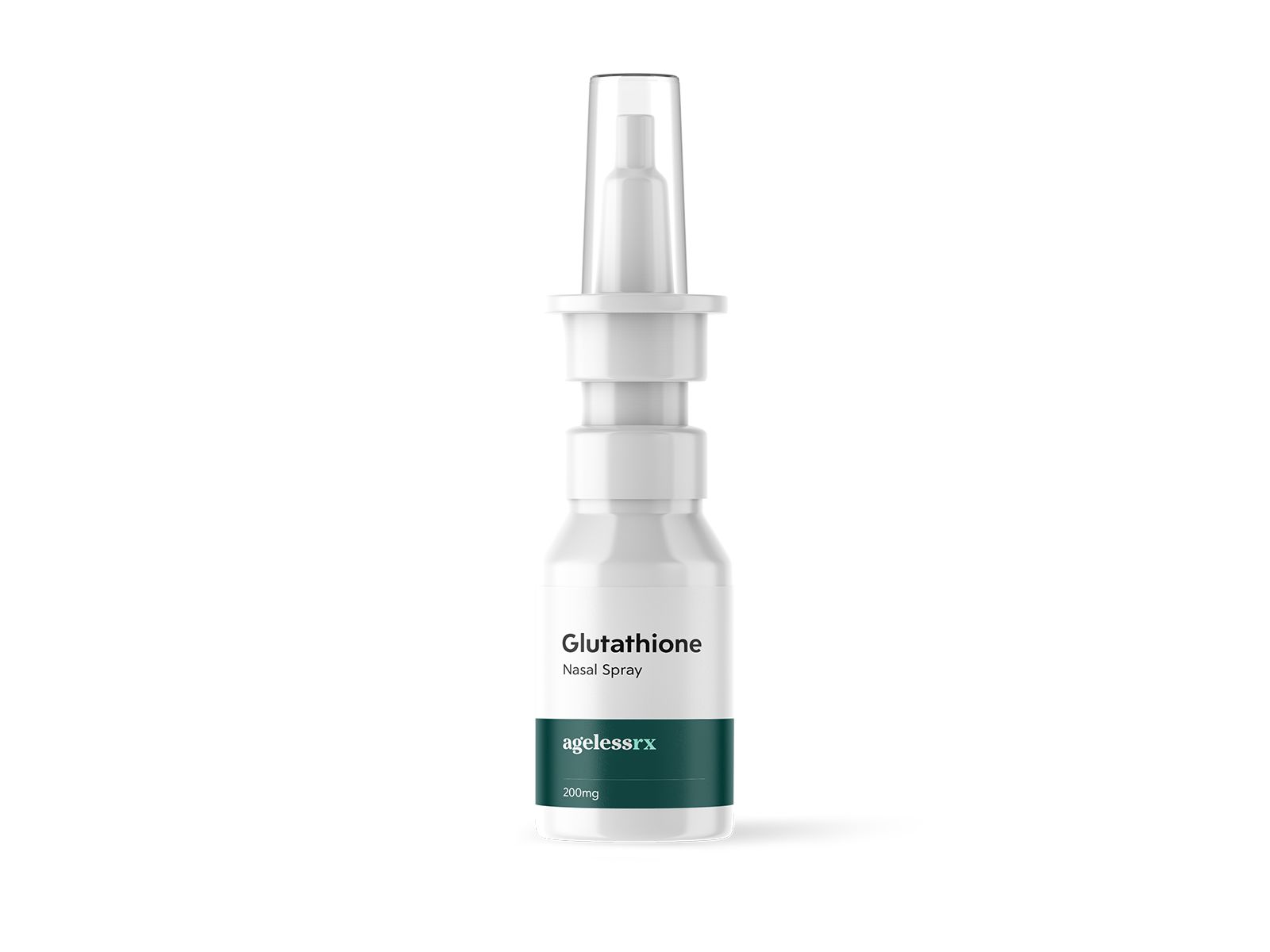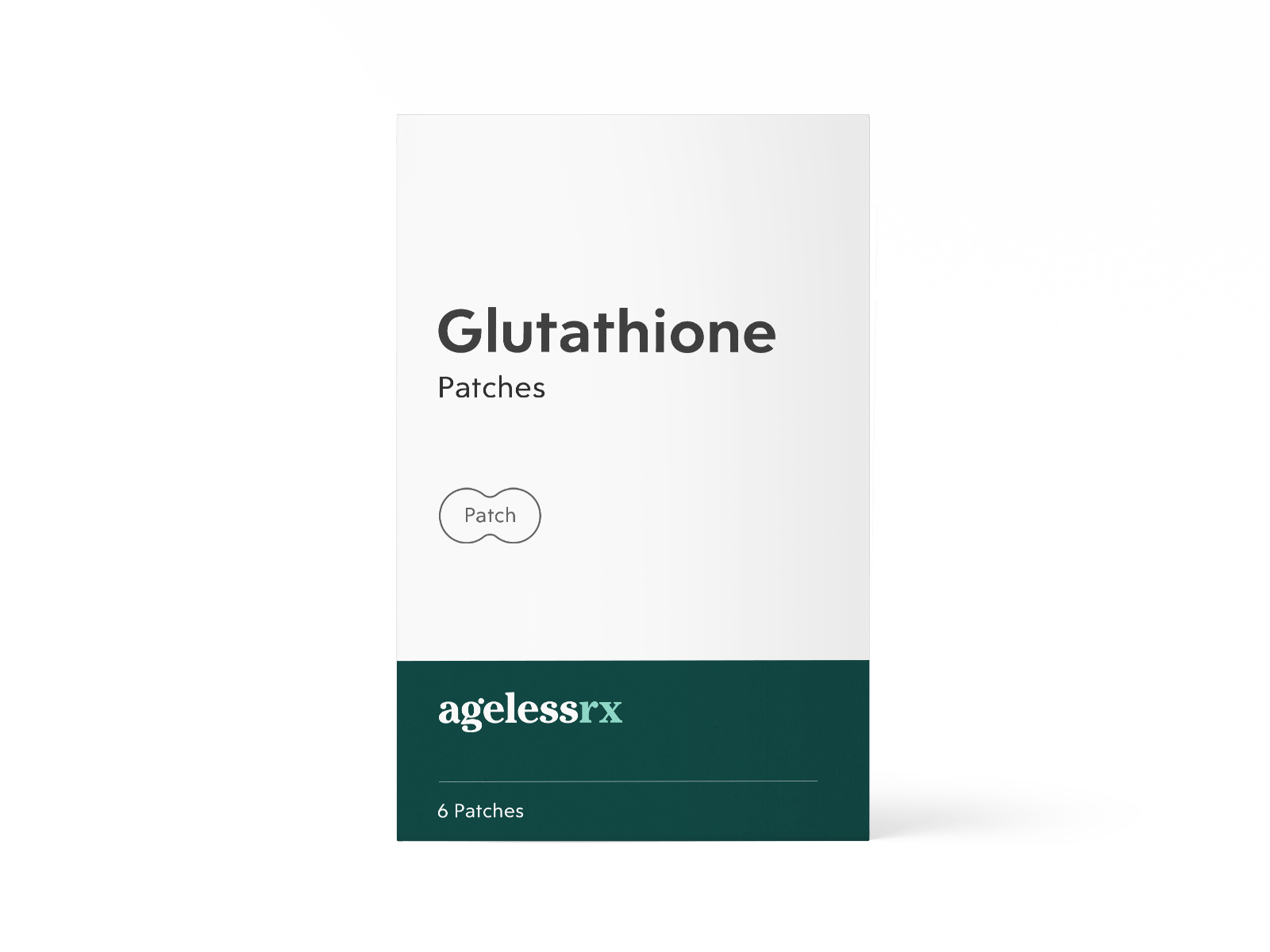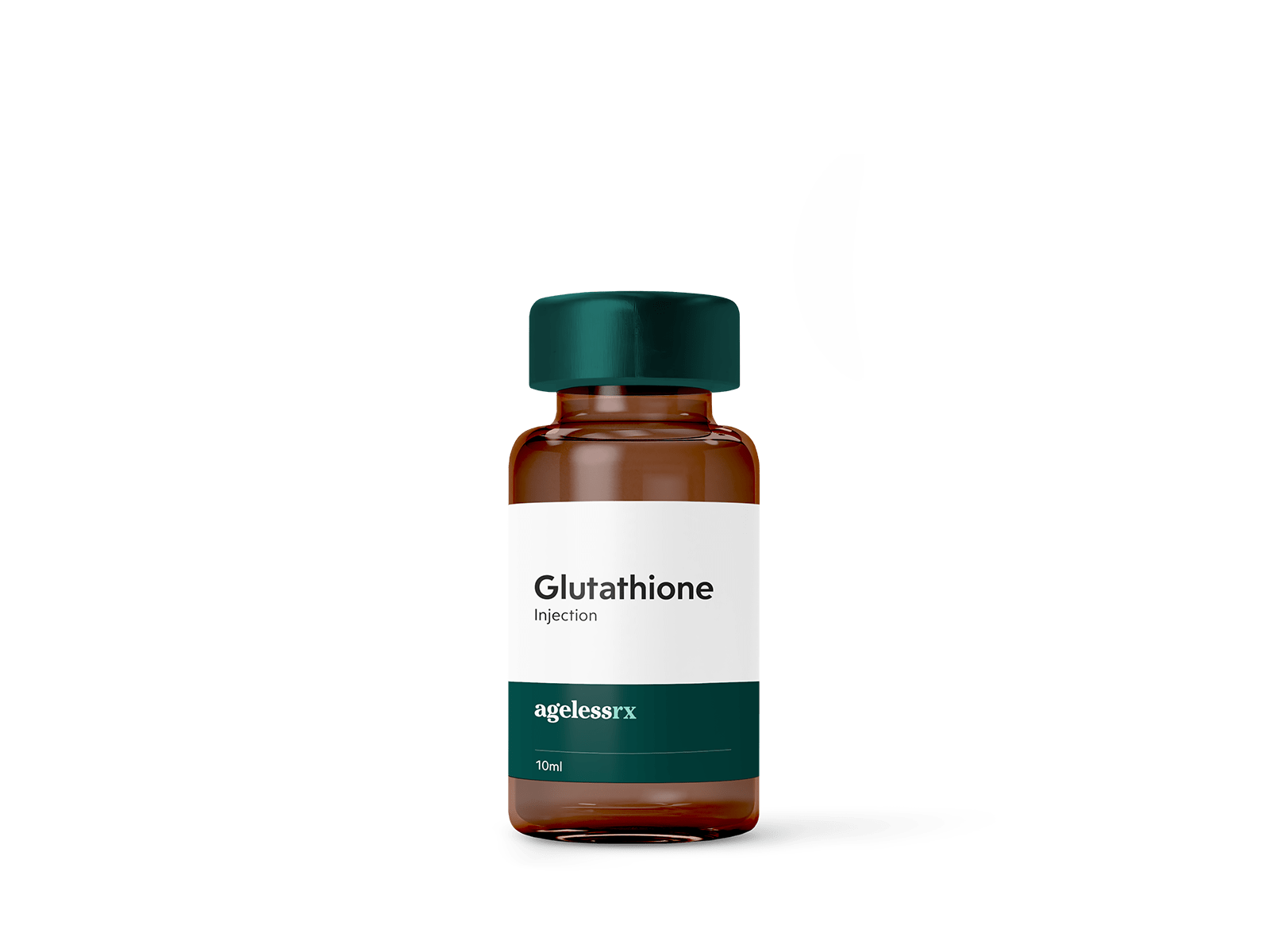SCIENCE & RESEARCH
Glutathione (GSH)

Background and history
- Glutathione (GSH) is a tripeptide made from glycine, glutamine and cysteine
- Antioxidant that reduces overall oxidative stress and Reactive Oxygen Species (ROS)
- ROS have the potential to damage DNA, RNA, and proteins
- By reducing oxidative stress and ROS, GSH reduces cellular degeneration
- Can reduce chronic inflammation and symptoms related to it
- Levels decline with age, poor nutrition, environmental toxins and stress
- GSH supplementation may overcome reduction in Nrf2 expression in age-related diseases
- Studies suggest improved symptoms associated with psoriasis, Parkinson’s Disease, several autoimmune diseases, and autism
Longevity benefits
- Lowers ROS to reduce damage to RNA, DNA, and proteins in the body
- Reduces inflammation and liver cell damage
- May improves insulin resistance
- Often improves overall skin health
- Works to strengthen the immune system
- Enhances detoxification and toxin removal, including heavy metals
- Involved in DNA synthesis & repair, protein synthesis, amino acid transport, modulation of glutamate receptors, and neurohormonal signaling

Research and studies
Parkinson’s Disease
A small randomized placebo controlled trial using IV glutathione over 4 weeks showed that it was well tolerated: “Preliminary efficacy data suggest the possibility of a mild symptomatic effect, but this remains to be evaluated in a larger study.”
Another small randomized placebo trial using nasal glutathione over 3 months showed improvement in total Unified PD Rating Scale (UPDRS) (-4.6 (4.7), P = 0.0025) and UPDRS motor subscore (-2.2 (3.8), P = 0.0485) over baseline. However, there was also a strong placebo effect, so the authors recommended reproducing the study with a larger group and longer duration.
Glutathione is used by the famous neurologist, Dr David Perlmutter, for degenerative diseases such as Parkinson’s.
Cancer Risk
A review and discussion stated: “ROS production is significantly increased in cancer cells because of mitochondrial dysfunction, altered metabolism, and frequent genetic mutations, resulting in an accumulation of large amounts of oxidized protein, DNA, and lipids… as an adaptive response, cancer cells harbor elevated levels of ROS-scavenging molecules. Antioxidant mechanisms include enhanced expression of molecules that can modulate ROS accumulation by both enzymatic and nonenzymatic means…Glutathione (GSH) is an antioxidant that acts as a free radical scavenger and a detoxifying agent in cells. It is useful in a multitude of processes, cellular proliferation, cell division, and differentiation, and is the most commonly elevated metabolite detected during oxidative stress.
Skin Health
A randomized, double blind, placebo-controlled study showed that “subjects who received GSH showed a significant reduction in wrinkles compared with those taking placebo. A tendency toward increased skin elasticity was observed in GSH and GSSG compared with placebo.”
Several randomized controlled trials also showed some evidence that GSH can act as a skin-whitening agent to some parts of the body or to certain age groups.
Type 2 Diabetes
A study compared individuals with Diabetes Mellitus, Impaired Glucose Tolerance, and normal controls: “The mean levels of GSH in subjects with DM were significantly reduced compared with IGT or normal subjects… we came to the conclusion that GSH deficiency was of great significance in the pathogenesis of Diabetes Mellitus.”
Autism
An 8 week open label trial using liposomal glutathione showed “Recent evidence shows that children diagnosed with an ASD have lower levels of plasma reduced glutathione (generally 20–40% lower) than typically developing children and their levels of oxidized glutathione are higher than typically developing children… oral and transdermal glutathione supplementation may have some benefit in improving some of the transsulfuration metabolites.”
Rheumatoid Arthritis
A small study of 58 rheumatic patients “Rheumatoid arthritis was associated with significant depletion (ca. 50%) in GSH levels compared with normal control subjects.”
Nonalcoholic Fatty Liver Disease (NAFLD)
An open-label, single-arm, pilot trial showed that ALT levels, triglycerides, non-esterified fatty acids, and ferritin levels significantly decreased after GSH treatment.
How it works
Oxidative stress occurs when there is an imbalance between the production of free radicals and the body’s ability to fight them off. When levels of oxidative stress in the body become too high, multiple diseases may begin to develop. These diseases include Diabetes, Cancer, Autism, Parkinson’s Disease, Fibromyalgia, Chronic Fatigue Syndrome/ME, Hashimoto’s, Rheumatoid Arthritis, and many others.

Glutathione helps stave off the impact of oxidative stress, which may, in turn, reduce disease and its associated symptoms:
- Skin Health (Prussick, Prussick, Gutman 2013)
- Neuroprotective/Autism (Rose et al, 2012) and (Kern et al, 2011)
- Reduction of Cancer Progression (Traverso et al, 2013)
- Liver Health (Honda et al, 2017)
- Decreases ROS (Armstrong et al, 2002)
- Rheumatoid Arthritis Therapy (Kaidry, 2019)
- Increase antioxidant capacity
- Reduction of oxidative stress (Almansa et al, 2013)
Important safety information and side effects
All medications have the potential for side effects. Side effects may vary based on the individual.
Most common GSH side effects
- Gastrointestinal discomfort (nausea, bloating, cramping)
- A rotten egg (sulfur) taste in the mouth, usually mild
Signs of an allergic reaction to glutathione may include hives, itching, swelling of the face or lips, tongue or throat, or difficulty breathing. If any of this occurs, discontinue use and seek emergency care.
Other important safety information
Avoid taking glutathione if you’re sensitive to it or allergic to any related ingredients. Do not use GSH if you are pregnant or breastfeeding.
All information included on this page is a summary. It may not cover all possible information. If you have questions about this medication, talk to a doctor, pharmacist, or health care provider.
Note: The above statements have not been evaluated by the Food and Drug Administration. This product is not intended to diagnose, treat, cure, or prevent any disease.
Explore GSH support

Glutathione Nasal Spray
Starting at $100

Glutathione Patches
Starting at $190

Glutathione Injection
Starting at $175
